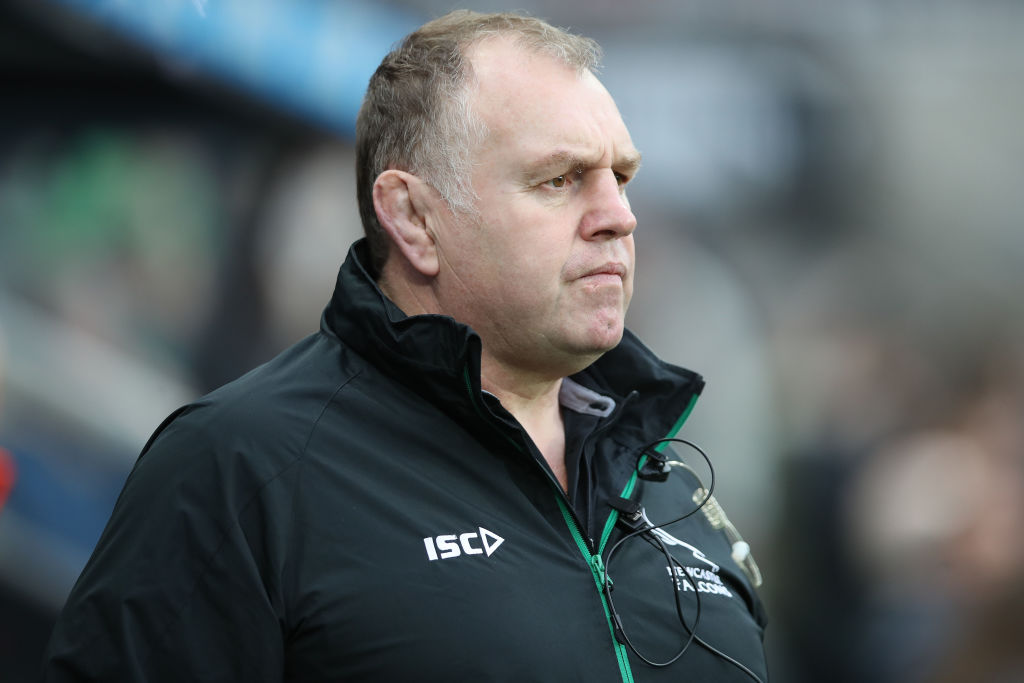
Newcastle rugby director Dean Richards tells NEALE HARVEY why relegation last season has failed to dampen his enthusiasm for rugby in the north-east.
I believe Newcastle’s players have been out and about painting and decorating at local clubs?
They have. I think professional players don’t realise sometimes what a great lifestyle they have and it helps them appreciate a little bit about the sacrifices that other people make to keep their clubs going. Plus, it gets us back into the community and brings people down to earth a little bit. All our players and coaches have been involved, including me, and we’ve been into Sunderland, Yarm, Tynedale, Houghton and Percy Park as well as some local charities.
You seem to have developed a big affinity for the north-east since joining Newcastle in 2012?
I think so. People have a belief that rugby plays second fiddle to soccer up here, which it does to a degree, but at the same time people don’t realise how strong rugby is up here and there’s an immensely strong rugby community in the north-east and across to Cumbria as well. Falcons are a big part of that and the club is in a pretty good state.
It must be very galling then to have been relegated last season?
No, that’s just part of life. I said all along that somebody had to go down and whoever was going to be relegated was going to be a good team. It just so happened it was us and there are reasons for that, but it’s our aim now to get straight back up.
Can you provide an insight into why you went down after finishing fourth the year before?
Games we were winning by a point or two in the last five or ten minutes the year before, we were losing in the opposite manner. A lot of that comes down to being unlucky with injuries and we had a huge number last season, whereas the year before we’d had our best season in terms of availability.
If either of those things don’t go your way, it can hurt you.
At what stage last season did you feel things were going against you?
When you start picking up serious injuries early on you hope it doesn’t continue throughout the season, but it tended to. We were without our captain Will Welch for long periods, Mark Wilson and Niki Goneva had injuries at crucial stages and we didn’t see much of Sean Robinson, Jon Welsh and Joel Hodgson, guys we were looking forward to seeing plenty of.
You can sit and moan about it but what it meant was we relied a lot on youngsters. When you do a calculation on the impact of our bench, when we finished fourth we had an average of 75 appearances-worth of experience coming on for the last 20-30 minutes, whereas last season it was below 30.
That lack of experience probably cost us, although the upside now is that those young guys have had game more time.
Having finished fourth in 2017/18, could you have done more recruitment-wise?
Not really. Other teams are spending huge amounts of money but we’re a bit more frugal with our purse strings so that probably wasn’t an option for us. Having said that, we looked at the squad and thought we were good enough on paper. But injuries happened and that lack of strength-in-depth came back to bite us on the backside.
Did you consider your own position following relegation?
I think everyone does, not just myself but all the coaching and support staff as well. But I’m still driven to do this job and provided I had the support of our owner, Semore Kurdi, I was happy to carry on.
Semore and I talked about it and were very pragmatic about the situation we found ourselves in, so it would have been a shame not to be able to build on seven years of work because the club is in a far better place now than it was before Semore took over and I arrived in 2012.
This isn’t a five, six or seven-year programme, it’s a 30 or 40-year one and both Semore and I want this club to be around and thriving for decades to come.
You’ll always get setbacks, it’s just the nature of the beast and whether it’s us, Worcester, Bristol or London Irish, every year there’s always somebody – a good club – who has to go down. It just so happens that there were 12 very good teams in the Premiership last year and we were the ones to go.
Does it once again highlight the iniquities of the current Premiership/Championship structure?
I’ve always been a firm believer in relegation and promotion for the worthwhile games it brings at the end of the season, and having been in that situation during the first few years I was at Newcastle, I still stood by that position. But my thoughts are changing slightly towards ring-fencing now, just purely because there’s been so much investment by a hard-core of 13 or 14 clubs into their community programmes, academies, coaching infrastructure and facilities.
If there’s a chance that somebody may come up who hasn’t made that investment or shown the interest in their community or local youngsters to give them a pathway through, it would seem wrong for them to be able to come up, take the spoils and then probably get relegated and walk away with the spoils again.
It probably feels the right time for ring-fencing and there’s a second part to that as well whereby if you’re an England player, it gives you a little bit of assurance that regardless of whether you’re at the top or bottom of the table, you wouldn’t have to be wheeled out week after week with the worry of relegation hanging over you.
We talk a lot about player welfare and now would be a good time to look at that because I also think it would help England ahead of big tournaments like the World Cup and Six Nations.
Annoyed that relegation cost you the services of a number of good players including, albeit temporarily, Mark Wilson?
It is frustrating sometimes but such is the great culture we have at the club that we haven’t actually lost as many players as sides normally do when they’re relegated. We’ve lost a fair few but a lot of boys wanted to stay here and be part of it. Things could have been a lot, lot worse and I’m just delighted with the squad we’ve got. A lot of good guys have come in as well.
You’ve retained the same coaching staff, did you consider discarding guys like Dave Walder, John Wells or Micky Ward?
Stability at a time like this is really important and I had no doubts about sticking with these guys. When you’re pragmatic about it and understand what’s gone on, you also have a very good understanding as to the worth of people and what needs to be done going forward. For me, stability is one of the main things in our favour and people tend to forget that these are the same coaches who got us up to fourth in the Premiership and were lauded for their work.
Championship sides like Ealing, Cornish Pirates and Coventry are spending big with the intention of giving you a bloody nose. What do you make of the league?
Ealing will challenge, as will Pirates, and Bedford are always there or thereabouts. Jersey and Coventry are difficult places to go and anyone who thinks the Championship is an easy place to play needs waking up. I’ve been in that league a couple of times with Harlequins and Newcastle and it’s a really hard place to survive. Not many teams come through unbeaten so it’s a tall task.
What’s the secret of success in the Championship?
You’ve got to win your away games. In some respects, Kingston Park on a Friday night or Sunday is a difficult place for most teams to come so we’ve got to take care of that, but we’ll really need to target the away games because they’ll be cup finals to a lot of people.
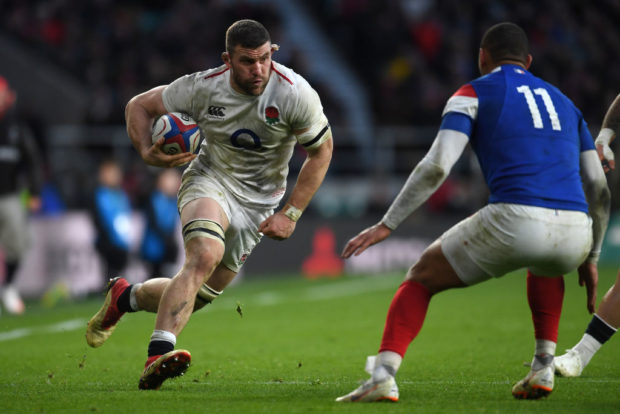
How pleased are you to see Mark Wilson in England’s 38-man World Cup squad?
Absolutely delighted, just as I was delighted when Simon Hammersley got a chance for England against the Barbarians and Chris Harris played for Scotland. I want all our players playing at the highest level, even boys who have left. I was fortunate to play at international level and understand what it’s about with the passion and pride it brings. It improves you as a player as well and you wouldn’t want anybody not to be given that opportunity.
What will Mark bring to England’s back row operation?
Everyone understands what he brings as a player in terms of work-rate, tackling ability and determination to win, but he’s also a leader and he needs a forum to voice his opinions or just lead from the front as he does so well. If he’s given that responsibility, he’ll be invaluable to England.
How do you assess England’s back row and ball-carrying options?
England’s success at the World Cup depends on the Vunipola brothers being fit. Scrummaging-wise you can probably replace Mako but his carrying ability as a prop you can’t replicate and it’s the same with Billy. Billy in the back row is absolutely massive and if you’ve got guys like Tom Curry and Mark Wilson around him, that’s a very good unit.
As a former No.8 yourself, where does Billy Vunipola stand in world terms?
World-class, right up there now. The big thing with him is fitness and getting him on that plane to Japan fit and healthy in the first place, then being able to wheel him out when you need him in those really big games. There’ll need to be some time management for key players, of which he’ll be one, but he’s going to be a huge presence.
Surprised Nathan Hughes hasn’t made the cut?
I was surprised he didn’t make it and that Alex Dombrandt dropped out as well because you need that big ball-carrier if Billy is out. Of the two, Dombrandt is more offensive than Hughes at the moment and I’d have had him in because it’s unclear who would be a big ball-carrying replacement for Billy at No.8. We’ll have to wait and see.
You mentioned leadership earlier, what do you make of Owen Farrell as captain?
He’s developing, isn’t he? The interesting thing is that if you look at the most successful England sides in 1991 and 2003, they always had a huge amount of experience on the field. They haven’t quite got that experience now that guys like Dylan Hartley, Chris Robshaw, Danny Care and Mike Brown have been left out which means they’re lacking a bit there. You can develop that in a few months but a lot of it comes down to the confidence around you and the ability to speak up and make decisions at the right time. There’s time to develop leaders who’ll assist Owen and then have a way of working that will help the team. For example, who speaks at certain times? Who speaks to the referee? They’re crucial things that still need ironing out.
How do you think Eddie Jones and England are tracking ahead of the World Cup?
Pretty good. I know everyone will look at the Six Nations and have doubts after the games against Wales and Scotland, but I read absolutely nothing into the Six Nations at all. He was experimenting in certain positions and there have to be question marks over whether Elliot Daly has enough experience at full-back to understand the role 100 per cent. Some of his errors and positional errors during the Six Nations probably cost us a couple of tries so it depends on whether Eddie goes with Daly or Anthony Watson or maybe turns back to Brown or even Alex Goode. There’s still time to make a change there and England will have to be wary of that threat, especially against sides like New Zealand who actually kick quite a lot. However, I still think England are capable of winning the World Cup.
Back to domestic issues, how do you rate the standard of Premiership refereeing?
I think Wayne Barnes is outstanding but there’s a significant gap between him and the next group of referees coming through. Wayne’s an incredibly bright individual who understands the game very well and also has a really good rapport with the players.
There’s no other referee I know who has the ability to go on to a pitch and speak to all the players by their Christian names. He knows everyone, whether it’s a youngster who’s just come in or an old lag, and he uses it time and again to build on-field respect with players.
It’s a real lesson to the younger referees in how to manage a game and he’s so consistent in his decision making.
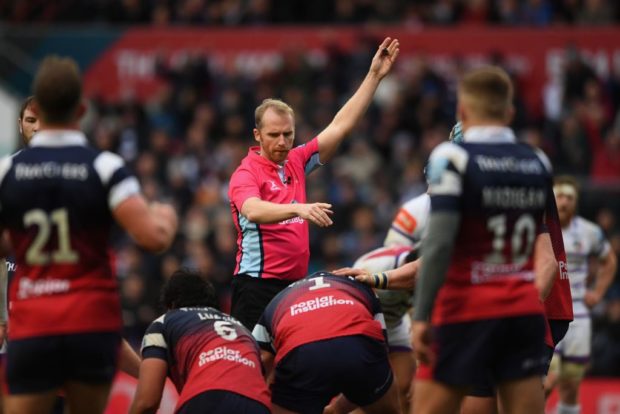
Are referees being encouraged not to interact with players?
It seems to be that way. What you’re finding now is that referees tend to make a decision and then walk away from players because they don’t want any interaction. I don’t know if they’re being taught that or they just don’t have the confidence to do it but there’s no doubt that interacting with players helps massively with the policing of a game and how a referee understands what players want.
Turning your back doesn’t help because it only antagonises situations. There are some very good young referees but they just don’t have the charisma of a Wayne Barnes or Nigel Owens, who are just brilliant with their communications skills. Wayne’s been one of the best for a long, long time now and that’s the standard all our guys should be aspiring to.
Painting and decorating aside, how will the rest of Newcastle’s pre-season look?
The boys finished their community work on Friday and we’ll get into a standard pre-season now. They’ll have some time off built into their programme and then we’ll head into our first Championship Cup match at Jersey in September. We’ll probably use the first three cup games as our pre-season going into the league and the enthusiasm among the squad is massively high.

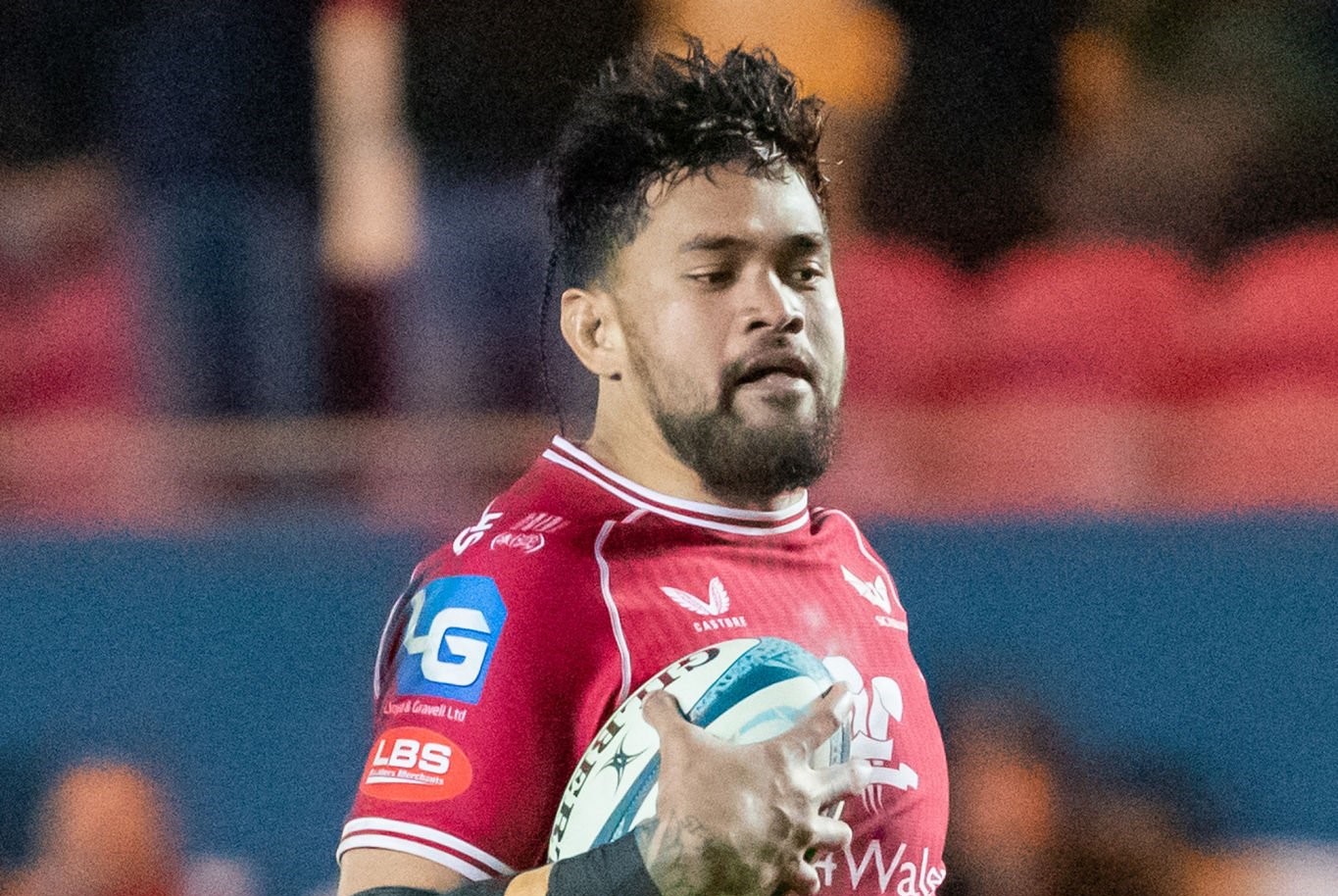
United Rugby Championship
Vaea Fifita’s commanding presence has Scarlets pushing for URC play-off spot
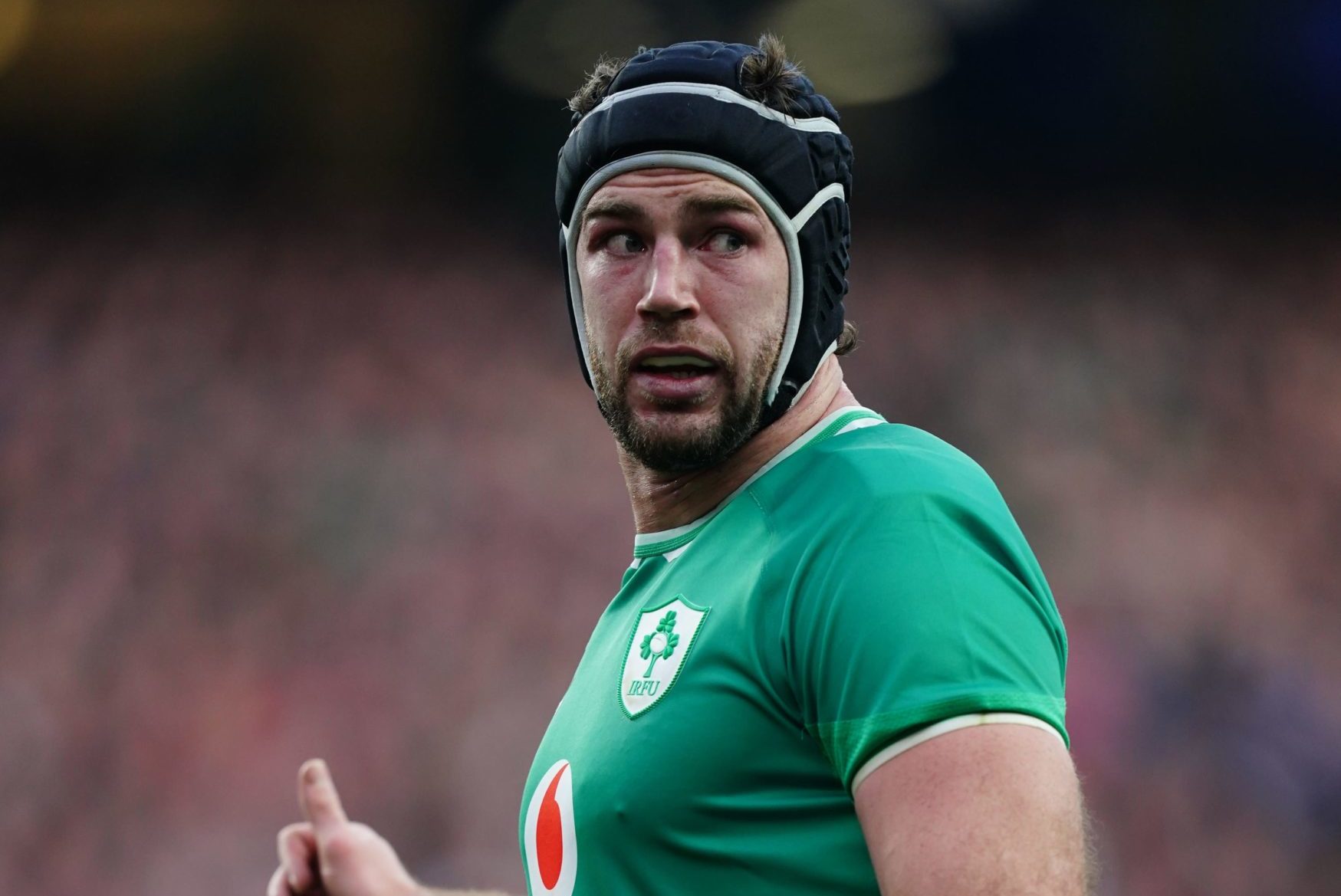
British and Irish Lions
British and Irish Lions Watch: Caelan Doris confirmed to miss the tour with injury

















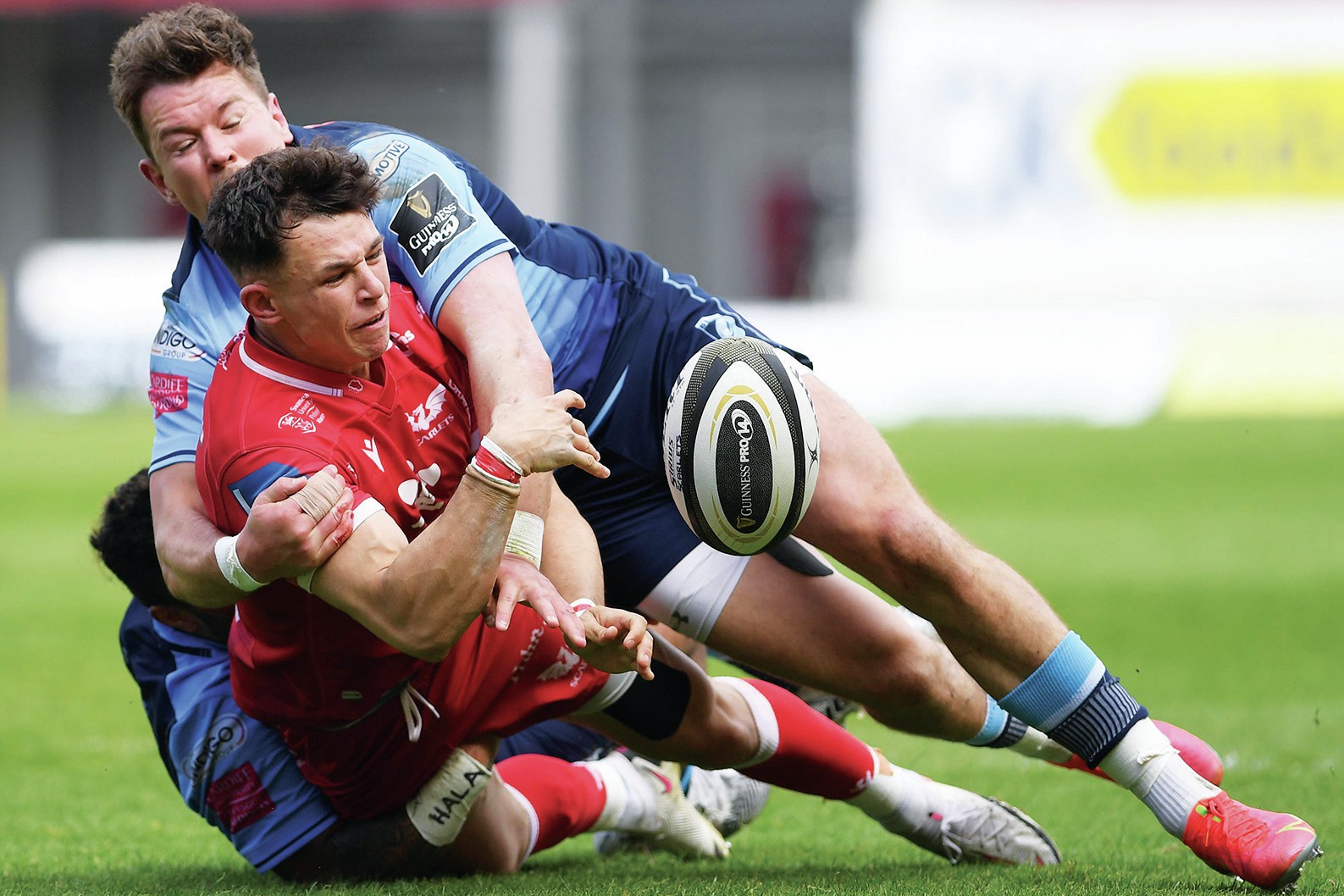
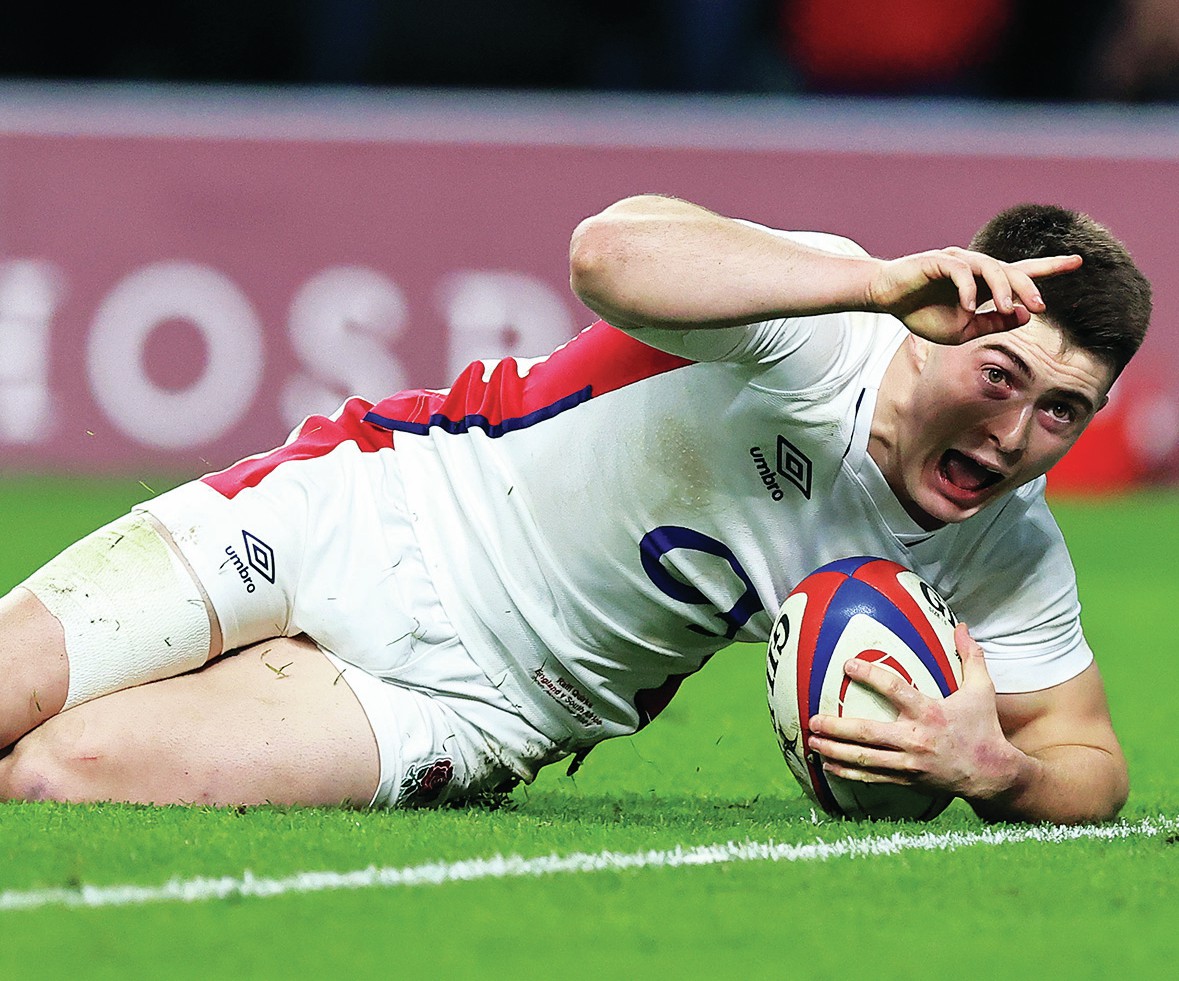
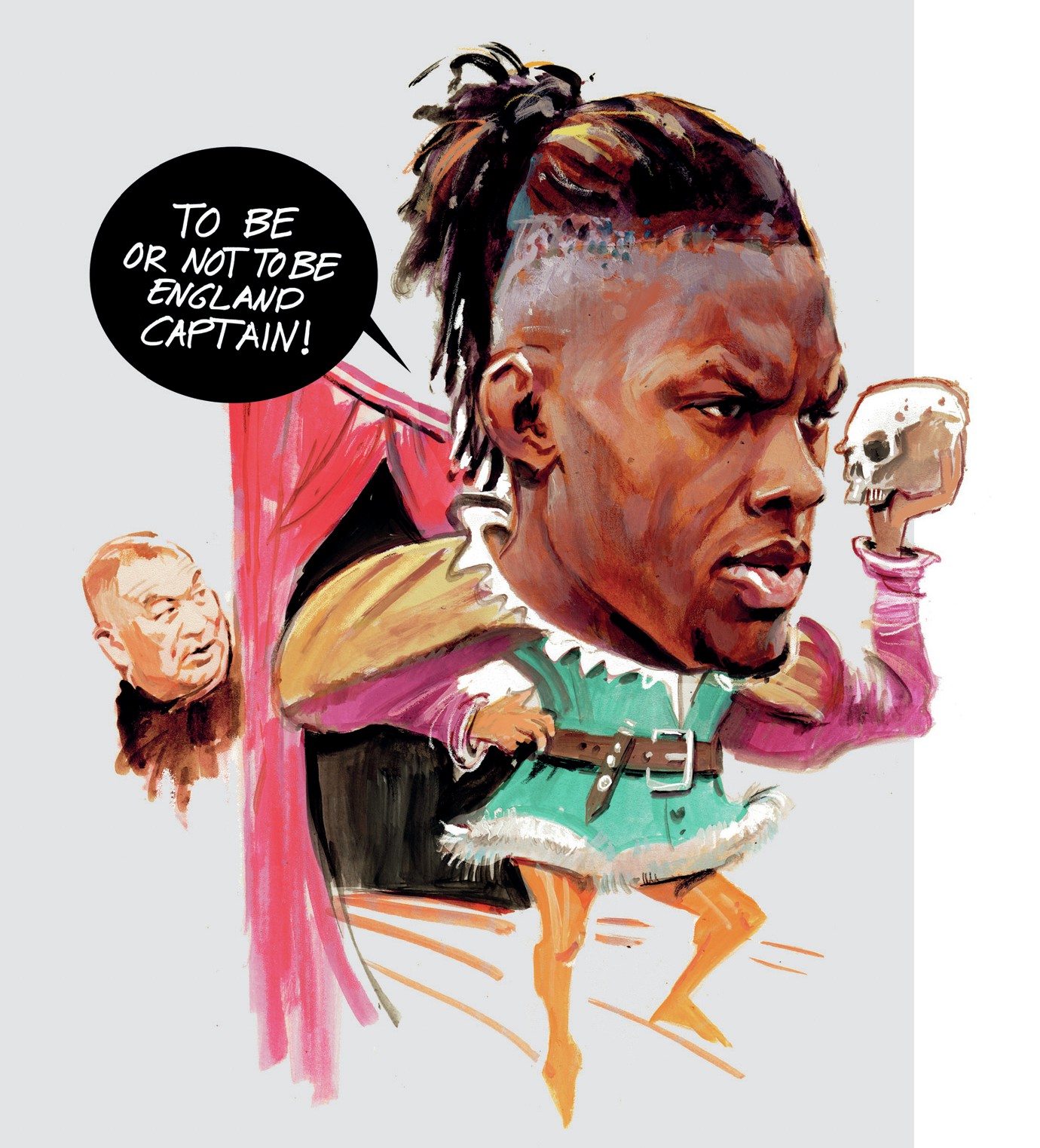
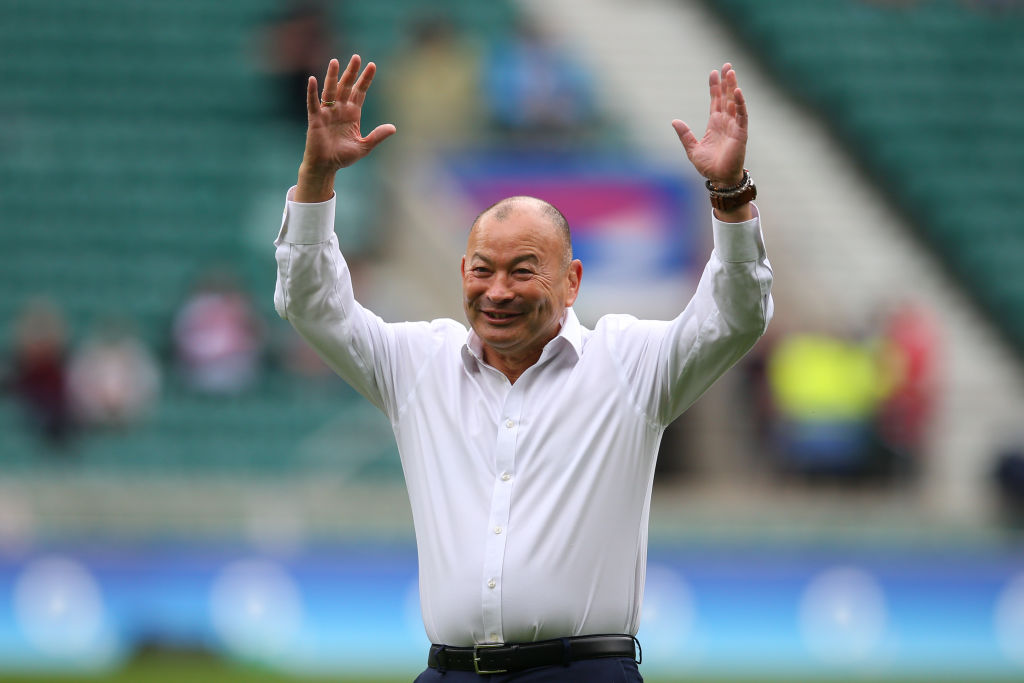

You must be logged in to post a comment Login